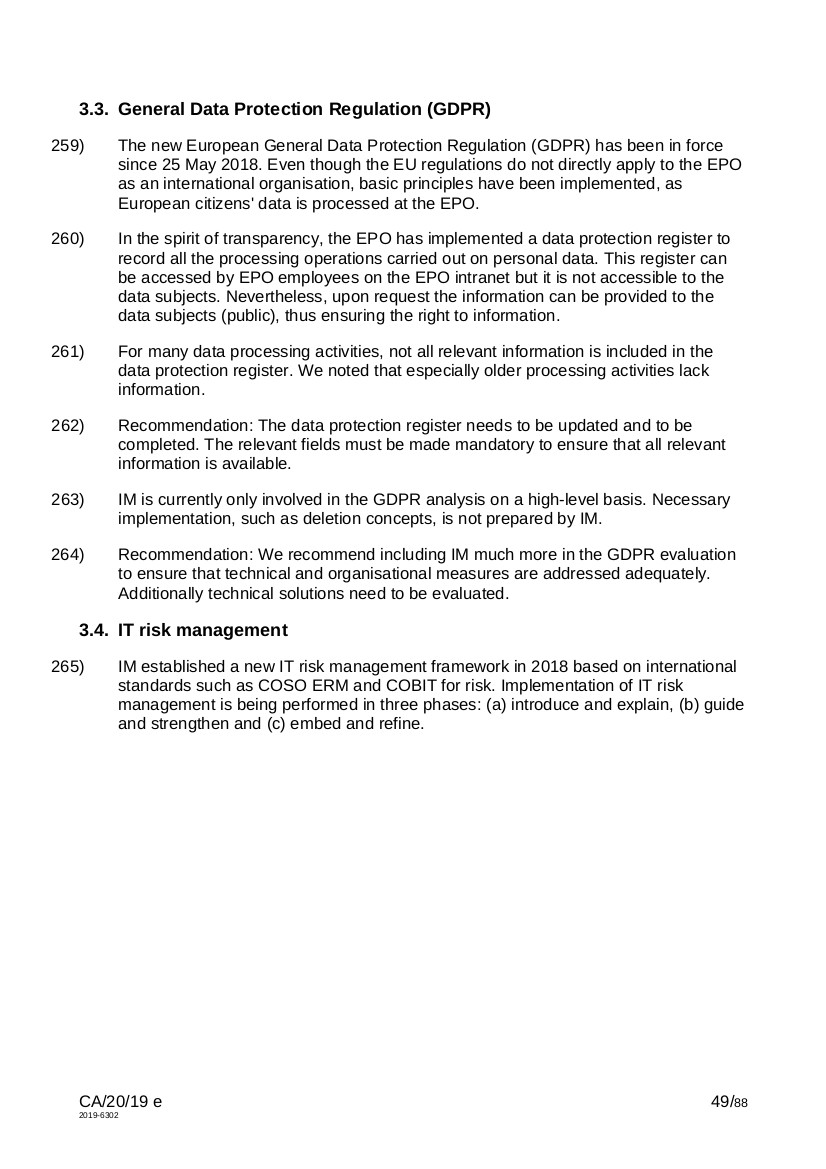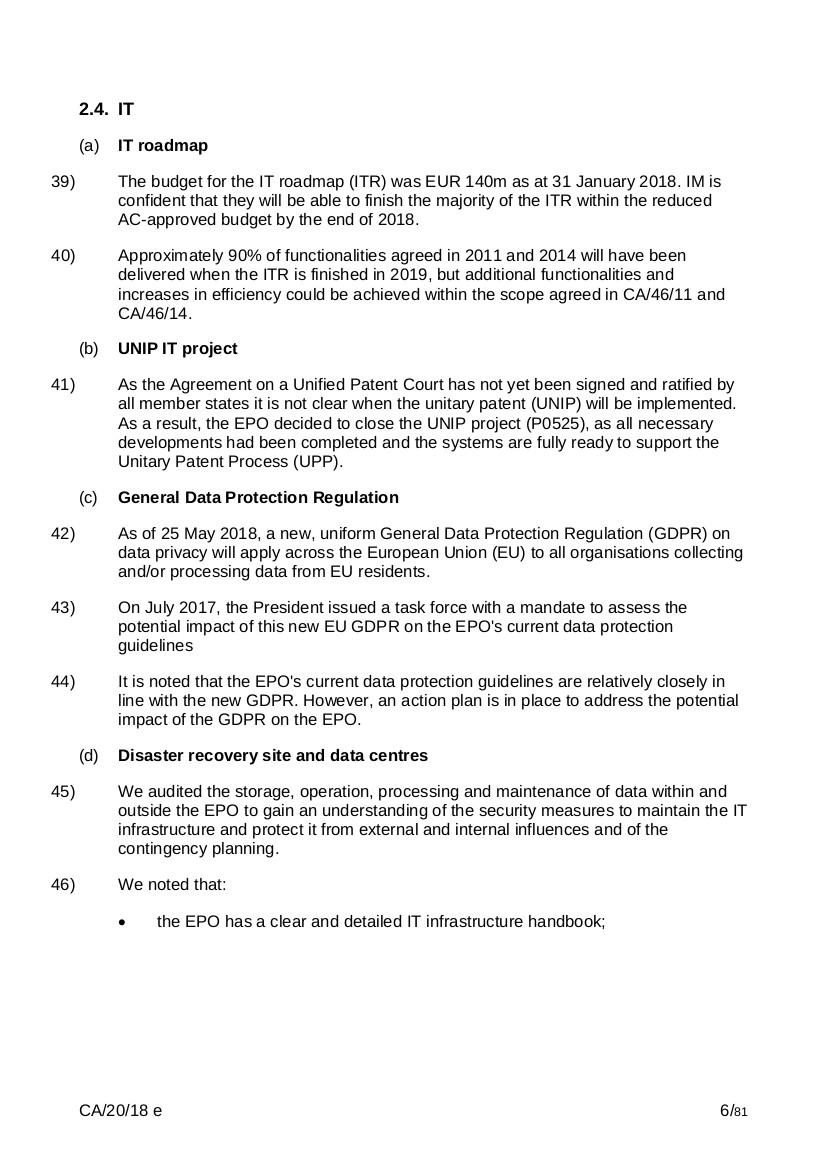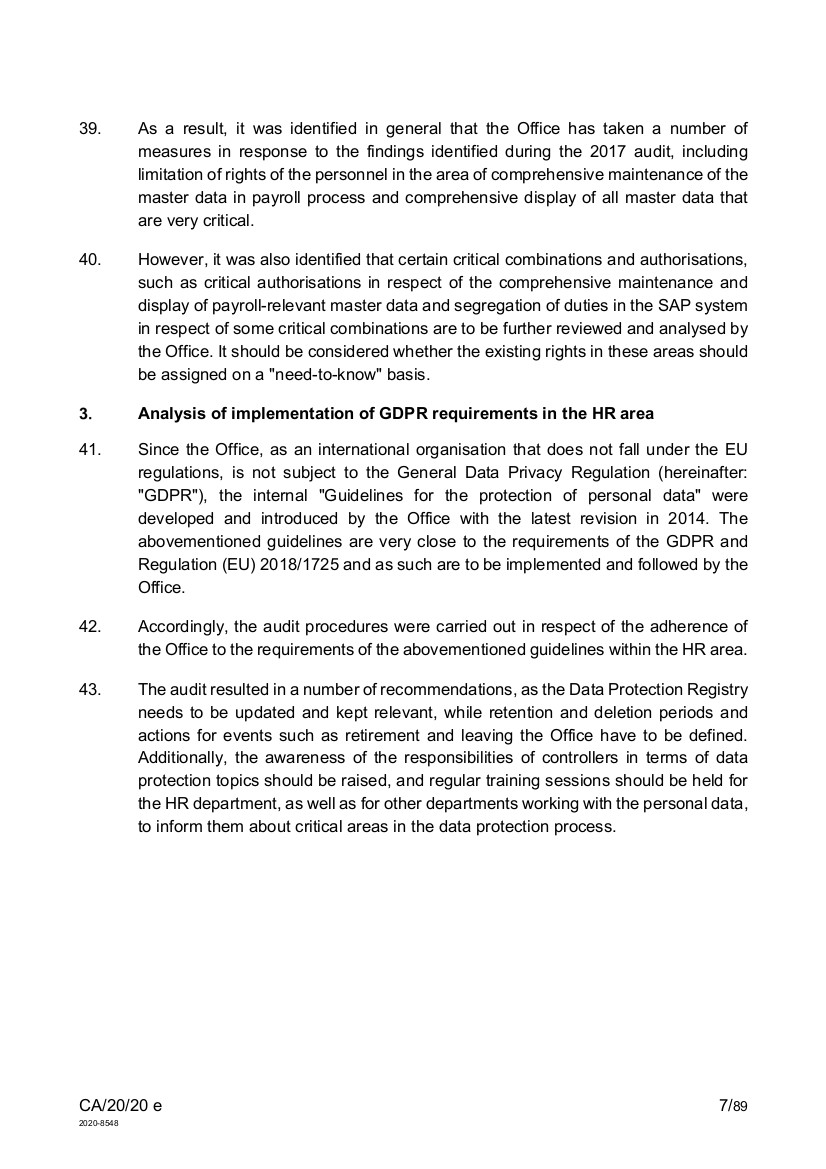

We have managed to track down copies of the "audit reports" which allegedly confirm a close alignment between the EPO's data protection framework and the GDPR.
epo.org link). One of these "independent" auditors is Battistelli's old crony from the INPI, Frederic Angermann.
" One of these "independent" auditors is Battistelli's old crony from the INPI, Frederic Angermann."Anyway, the annual audit report is usually issued as Administrative Council document no. 20 at the end of April or beginning of May each year.
So for 2020, the document is numbered CA/20/20 [PDF].
For 2019 it is CA/20/19 [PDF] and for 2018, the reference number is CA/20/18 [PDF].
"From this it can be seen that the the annual reports of the Board of Auditors just parrot the party line of EPO management..."We've made local copies as we want this to last and remain unchanged, just in case something mischievous was to happen at the EPO's end. As happened in the past...
The documents are publicly available via the official webpage of the Council (warning: epo.org link) and can be found using the search keyword "auditors".
The first mention of GDPR is in the 2018 audit report, CA/20/18, on page 6 of 81:
42) As of 25 May 2018, a new, uniform General Data Protection Regulation (GDPR) on data privacy will apply across the European Union (EU) to all organisations collecting and/or processing data from EU residents. 43) On July 2017, the President issued a task force with a mandate to assess the potential impact of this new EU GDPR on the EPO's current data protection guidelines. 44) It is noted that the EPO's current data protection guidelines are relatively closely in line with the new GDPR. However, an action plan is in place to address the potential impact of the GDPR on the EPO.

259) The new European General Data Protection Regulation (GDPR) has been in force since 25 May 2018. Even though the EU regulations do not directly apply to the EPO as an international organisation, basic principles have been implemented, as European citizens' data is processed at the EPO.
41. Since the Office, as an international organisation that does not fall under the EU regulations, is not subject to the General Data Privacy Regulation (hereinafter: "GDPR"), the internal "Guidelines for the protection of personal data" were developed and introduced by the Office with the latest revision in 2014. The abovementioned guidelines are very close to the requirements of the GDPR and Regulation (EU) 2018/1725 and as such are to be implemented and followed by the Office.

"There hasn't actually been any independent audit of the EPO's data protection framework to determine the level of GDPR compliance."Additionally, it recommends that "the awareness of the responsibilities of controllers in terms of data protection topics should be raised, and regular training sessions should be held for the HR department, as well as for other departments working with the personal data, to inform them about critical areas in the data protection process."
From this it can be seen that the the annual reports of the Board of Auditors just parrot the party line of EPO management according to which "the EPO's current data protection guidelines are relatively closely in line with the new GDPR" (CA/20/18) and "the internal 'Guidelines for the protection of personal data' [which] were developed and introduced by the Office with the latest revision in 2014 ... are very close to the requirements of the GDPR and Regulation (EU) 2018/1725" (CA/20/20).
There hasn't actually been any independent audit of the EPO's data protection framework to determine the level of GDPR compliance.
All that we have are bald assertions of GDPR compliance by EPO management which have been rubber-stamped by the auditors without further ado.
"All that we have are bald assertions of GDPR compliance by EPO management which have been rubber-stamped by the auditors without further ado."Given that EPO management claimed at the time of adoption of the EPO's internal "Guidelines for the protection of personal data" in 2014 that they were closed aligned to the earlier EU Regulation (EC) 45/2001, it remains to be explained how these same Guidelines could now manage to be compliant with the GDPR which was not adopted by the EU until 2016 and entered into force in 2018.
Of course it's complete nonsense but as long as nobody actually goes to the trouble of carrying out an independent audit who's going to notice anything? ⬆